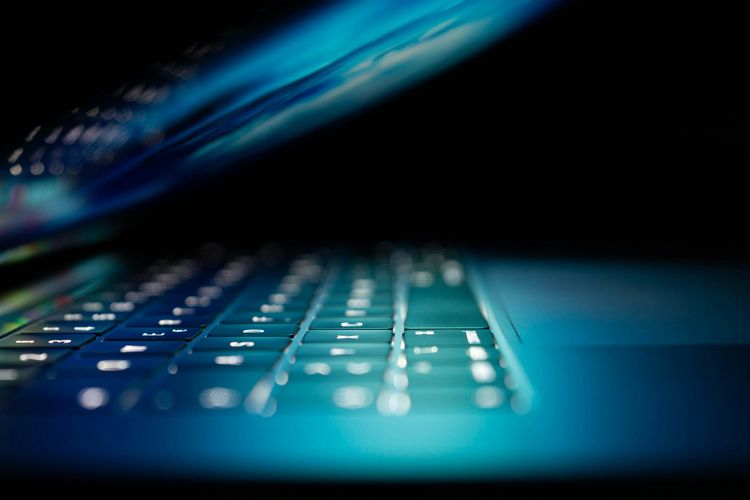The Importance of Multifactor Authentication
Learn why Multifactor Authentication (MFA) is essential for protecting sensitive data by requiring multiple forms of verification to secure accounts against cyber threats.

The Importance of Multifactor Authentication
In today’s interconnected world, where almost every aspect of our lives involves some degree of online activity, the importance of protecting personal and professional data cannot be overstated. The sheer volume of cyberattacks targeting individuals, businesses, and governments has made robust security measures an essential part of modern life. One such measure that has proven to be a game-changer in cybersecurity is multifactor authentication (MFA).
What is Multifactor Authentication?
Multifactor authentication (MFA) is a security process that requires users to verify their identity using more than one method of authentication. This additional layer of protection ensures that even if one authentication factor is compromised, unauthorized access to sensitive data can still be prevented. MFA typically combines two or more of the following elements:
- What You Know: This is the most familiar factor, often in the form of a password or PIN.
- What You Have: This refers to a physical device like a security token, a mobile app for authentication, or a hardware key.
- What You Are: Biometric verification, such as fingerprints, facial recognition, or voice patterns, falls into this category.
Why Is Multifactor Authentication Important?
The limitations of relying solely on passwords are well-documented. Many users create weak passwords or reuse the same ones across multiple accounts, making them easy targets for hackers. Even strong passwords can be compromised through phishing attacks, data breaches, or brute-force methods. MFA addresses these vulnerabilities by adding extra steps to the authentication process, making it exponentially more difficult for attackers to gain access.
Here’s why MFA is vital for your digital security:
- Enhanced Protection Against Cyber Threats: MFA ensures that even if a password is stolen, the hacker would still need access to the second or third authentication factor. This dramatically reduces the likelihood of a successful breach.
- Compliance with Security Regulations: Many industries, such as finance and healthcare, require MFA to comply with data protection laws and regulations. Adopting MFA not only safeguards data but also helps organizations avoid hefty fines for non-compliance.
- Building Customer and Employee Trust: When businesses implement MFA, they demonstrate a commitment to security. This reassures customers and employees that their data is being handled with care.
- Adapting to Modern Threats: Cybercriminals continuously evolve their tactics. MFA provides a proactive defense by staying one step ahead, mitigating risks that traditional authentication methods cannot address.
Real-World Applications of MFA
From email accounts to banking apps, MFA is becoming a standard security feature across various platforms. For instance:
- Financial Services: Banks and payment platforms use MFA to protect transactions, requiring customers to verify their identity through SMS codes, app-based notifications, or biometrics.
- Corporate Networks: Businesses use MFA to secure sensitive internal systems and prevent unauthorized access, especially in remote work environments.
- Personal Use: Popular platforms like Google, Facebook, and Apple now offer MFA options to safeguard user accounts from hackers.
Challenges in Implementing MFA
While MFA is highly effective, it is not without its challenges. Some users may find the additional steps cumbersome or confusing, which can lead to resistance in adoption. Furthermore, reliance on SMS-based authentication can pose risks, as SIM-swapping attacks can compromise this method. Despite these limitations, the benefits of MFA far outweigh its drawbacks, especially when combined with best practices and emerging technologies like hardware tokens and advanced biometrics.
The Future of MFA
As technology continues to advance, so too will the capabilities of multifactor authentication. Innovations in artificial intelligence, machine learning, and behavioral biometrics are expected to make MFA even more seamless and secure. For example, systems may soon be able to analyze a user’s typing patterns or navigation habits as part of the authentication process. Additionally, passwordless authentication, which relies solely on biometrics and tokens, is poised to revolutionize the way we secure our digital identities.
Conclusion
The importance of multifactor authentication cannot be overstated in a time when cyberattacks are more sophisticated and widespread than ever. Whether you’re an individual looking to secure personal accounts or a business striving to protect sensitive data, MFA is a critical tool in your cybersecurity arsenal. By requiring multiple forms of verification, MFA ensures that your digital identity and assets remain safe from prying eyes. Embrace multifactor authentication today to safeguard your online presence and stay ahead of evolving threats.

